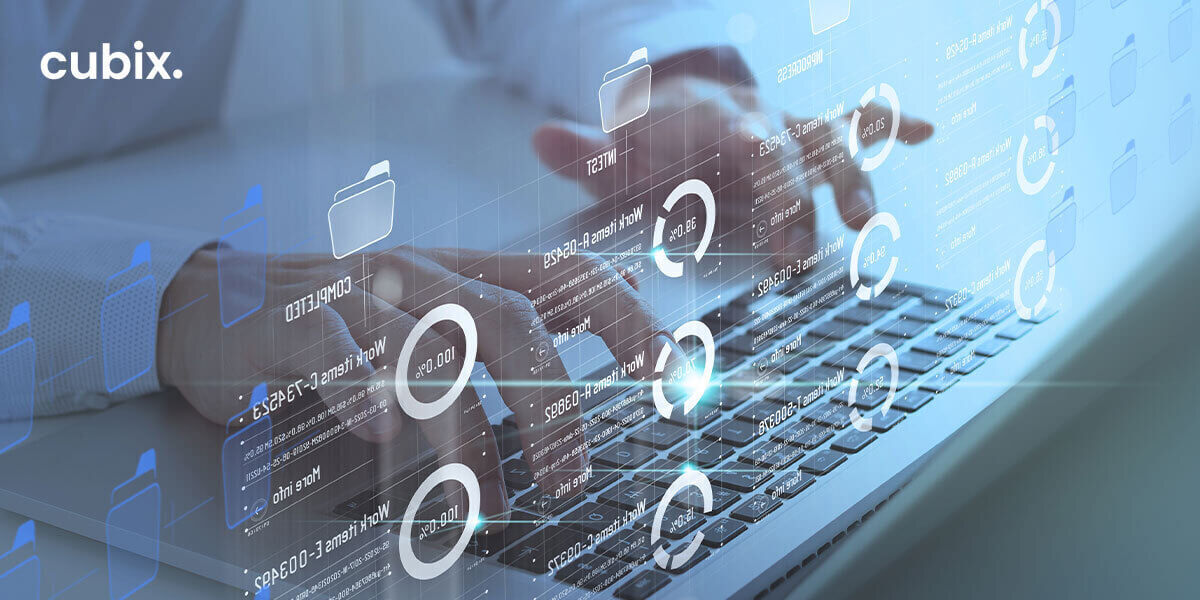Data security is an issue that can’t be emphasized enough, particularly when it’s financial data that’s almost always a preferred high value target.
To safeguard their interests and those of their stakeholders, financial institutions aim to adopt the very best technologies available, which undeniably encompasses blockchain technology and frameworks that can build blockchain solutions.
Therein lies the need for frameworks that ease and speed up blockchain app development i.e., frameworks enable the creation of decentralized apps (the short forms for decentralized apps include DApps, dApps, Dapps, or dapps).
Frameworks designed to build decentralized apps have gained popularity slowly and steadily over the past decade, as they continue to be the key focus of aspiring and pioneering entrepreneurs and company owners worldwide.
DApp frameworks, like front-end frameworks for front-end developers, are sections of code created to develop tools that make it easier to build blockchain apps. Consequently, using these framework helps you build your desired applications quickly and effectively.
This blog post will compare a few popular Dapp development frameworks used by blockchain development companies while looking at their features, benefits, and shortcomings.
What are DApps?
Decentralized applications, or DApps, are open-source applications that run on a peer-to-peer server network and can be accessed with smart contracts (crypto/tokens).
The blockchain systems on which these apps may be built include Ethereum, EOS, Hyper Ledger, Polkadot, etc. As they don't operate on centralized servers, DApps are far more stable and secure than conventional apps.
DApps provide more flexibility, accessibility, and disclosure by removing the intermediary between consumers and merchants while minimizing the concerns concerned with managing customer data.
You might be interested in Best Practices for Smart Contract Development
Why are DApp Development Frameworks Important?
A functional dApp encompasses a series of technological components. Several necessary functions and features already comprise DApp frameworks, or they offer simple module mechanisms that allow you to select tools you would like to have. In addition, a multitude of pre-built features are included with frameworks, such as:
Learn More: Create NFT Games with Unique Digital Assets
What kinds of apps can be developed using DApp frameworks?
Several blockchain-based DApp models address diverse functional challenges. First, we'll review the DApps covering DeFi, DAO, and merchandise management.
DeFi Apps:
Apps that are classified as blockchain-based decentralized finance (DeFi) allow investors to carry out financial transactions without an intermediary. Several decentralized applications enable DeFi investment.
Bitcoin and Ethereum are cryptocurrencies that work as decentralized digital money. They can easily be sent to anybody from anywhere without an intermediary. However, they have their worth based on the platform that accommodates them. And so, Bitcoin itself is a token with unit value on its own, but is secured and has higher value through a blockchain decentralized ledger; it operates independent of intermediaries with high security levels and superb traceability i.e., it is a DeFi app that gives Bitcoin its value.
Soon, decentralized currencies will be programmed to conduct autonomous functions. Exchanges, lending services, insurance firms, and other decentralized institutions can be developed with the help of this technology, as DeFi apps eliminate mediators and promote the idea of complete decentralization and transparency.
Note: while we have discussed Bitcoin as a cryptocurrency operating on a blockchain platform, it’s noteworthy to mention that Ethereum is a cryptocurrency too, but it also owns the blockchain platform it operates on. Hence, the Ethereum platform can be used for other solutions too.
Decentralized Autonomous Organizations (DAOs):
A decentralized autonomous organization (DAO) is a group controlled by a set of Ethereum-based smart contracts. Smart contracts are capable of anything if you program them to do what you want. A DAO is an organization that operates via a set of blockchain-based smart contracts. DAO members possess tokens from the organizations, and they can vote according to the organization’s initiatives.
A smart contract will hire employees, pay them, and manage payments for them. It renders the entire business autonomous. The only difference between a DAO and Google or Meta is DAO's decentralization. It runs openly and autonomously without external interference.
Merchandise Management:
A merchandise management DApp is frequently related to supply chain operations and platforms. Since we generally are unaware of the true composition and origin of items, the conventional supply chain lacks insight and openness. But with a supply chain on a blockchain, you can track where items are made since the data recorded on the blockchain is decentralized.
List of Top DApp Development Frameworks
We've compiled a list of the top 05 frameworks for DApp development:
Hardhat
Hardhat is a JavaScript framework that allows developers to assemble, test, execute, and troubleshoot decentralized applications built on the Ethereum blockchain (ethers.js).
Hardhat assists developers in managing the commitments associated with creating a decentralized application and smart contracts. Hardhat comes with an integrated Ethereum network for development. The platform specialization is sufficient for high-end debugging if a decentralized application transaction fails, giving developers the means to identify the root cause of the program's failure.
Features:
Merits:
Drawbacks:
One major drawback of Hardhat is that it is specifically designed for experts rather than beginners. Its instructions on how to get started are limited. As a result, beginners developing DApps may switch to alternative frameworks before plunging into Hardhat.
Learn More About Our Dapp Development Service
Truffle
Truffle is yet another widely used decentralized application development framework for the Ethereum network. It assists developers with composition, deployment, and debugging. Most other frameworks followed Truffle's lead, and if you are new to DApp development, you will almost certainly come across Truffle due to its user-friendly setup.
It can be utilized with other EVM-compatible blockchains such as Binance Smart Chain, Hyperledger, Polygon, and others. In addition, it works with the Solidity and Vyper programming languages, and if you are familiar with Node.js, you will have an advantage because Truffle is built on JavaScript.
Features:
Merits:
You may also enjoy reading: Why invest in Web3 and How to do it
Drawbacks:
Brownie
Brownie is built on Python and used for smart contract creation, debugging, deployment, and testing on Ethereum Virtual Machines. Moreover, it supports Vyper, a Python smart contract language akin to Solidity for creating smart contracts, and it is the second most widely practiced language by developers.
Features:
Merits:
Drawbacks:
Embark
In addition to being a preferred framework for creating decentralized applications, Embark also offers several services and tools that help speed up and simplify development. Embark is used for front-end and end-to-end tool sets for testing and deploying smart contracts.
Features:
Merits:
Drawbacks:
OpenZeppelin
With built-in upgradeable smart contracts, OpenZeppelin is a robust platform that offers tools to create and deploy decentralized applications.
OpenZeppelin uses the Solidity programming language to create smart contracts. In OpenZeppelin, the ERC20 library is easily accessible, while secure smart contracts for the Ethereum Blockchain are created using the modular contracts library developed in Solidity.
Features:
Merits:
Drawbacks:
Also Read: What are Web3 Contracts? Exploring Smart Contracts
How to Decide a DApp Development Framework for your DApp
Knowing what you want to do and what tools you need will help you choose the right framework for your project. Perhaps, if you prefer something Python-based, your only choice can be the Brownie framework.
Evaluating the community's support for the framework you've chosen helps with your selection. What if there's a noteworthy glitch? Could you overcome it with your team? Or is the community capable enough to make things better?
Cubix as your DApp Development Partner
Clients are extremely interested in DApps since they provide more features and perks than centralized applications. However, as DApps are created using frameworks, it would be best if you first determined what you need to do to develop your application and what resources you'll need when opting for an ideal framework for your project.
If you're indecisive about how to develop a DApp, Cubix will provide you with thorough yet convenient directions. We'll also demonstrate how to monetize these applications and the markets where they work wonders.
As one of the leading DApp development service firms, we are more than capable of taking the opportunity to enlighten you on this intriguing domain with significant financial openings.
The Cubix DApp development team has a strong track record of developing tailored DApps from the ground up for various industries. Over the past several years, we have consistently produced high-quality custom solutions for startups and organizations in E-learning, logistics management, entertainment, and many other industries. So contact us right now for a consultation.

